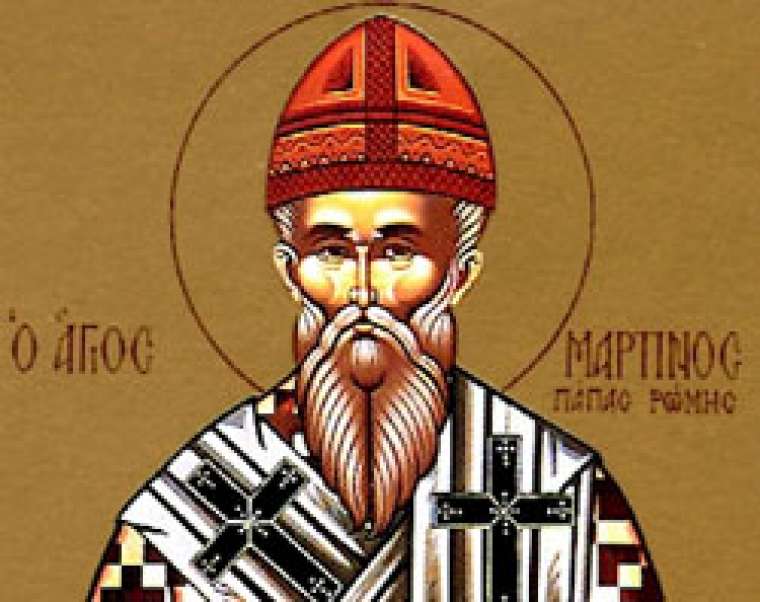St. Martin was born in Tuscany, during either the late sixth or early seventh century. He became a deacon of Rome, where he became known for his holiness and education.
Pope Theodore I chose Martin as his representative to the emperor in Constantinople during a period of theological controversy. Martin became involved in a dispute over Christ’s human nature. Although the Church acknowledges the eternal Son of God as “becoming man,” some Eastern bishops continued to teach that Christ’s human nature was different than that of other human beings.
In the seventh century, the heresy, known as monothelitism, spread through the Byzantine Church. The heresy taught that Jesus had two natures, human and divine, but only a divine will. Pope Theodore condemned the teaching, and excommunicated Patriarch Pyrrhus of Constantinople for upholding it.
When he succeeded Theodore as pope, Martin continued his work. He condemned Pyrrhus’ successor, Patriarch Paul II, at the Lateran Council of 649, and denounced everyone who believed monothelitism. Martin insisted that to refuse to acknowledge Christ’s divine and human wills was to deny the biblical teaching that Christ was like humanity in everything but sin.
The Byzantine emperor sent a representative to Italy during the council, to either arrest Martin or have him killed. The henchman attempted to assassinate the pope as he distributed communion, but testified later that he suddenly lost his eyesight and couldn’t complete his mission.
In 653, the emperor again tried to silence Pope Martin, sending a delegation to capture him. After a struggle, Martin was taken to Constantinople, and then exiled to the island of Naxos for a year. Those who tried to help him were denounced as traitors. Eventually, Martin was brought back to Constantinople, and sentenced to death.
The pope’s executors stripped him of his clothes and led him through the city before locking him up with a group of murderers. He was beaten so badly that he appeared to be close to death, but at the last minute, the Patriarch of Constantinople and the emperor decided to keep Martin in prison rather than kill him.
Martin was then exiled to an island suffering from a severe famine. He wrote to a friend that he was “not only separated from the rest of the world,” but “even deprived of the means to live.” Pope Martin died in exile in 655.
Martin’s relics were eventually returned to Rome. The Third Ecumenical Council of Constantinople, in 681, confirmed that Christ had both a divine and a human will.

